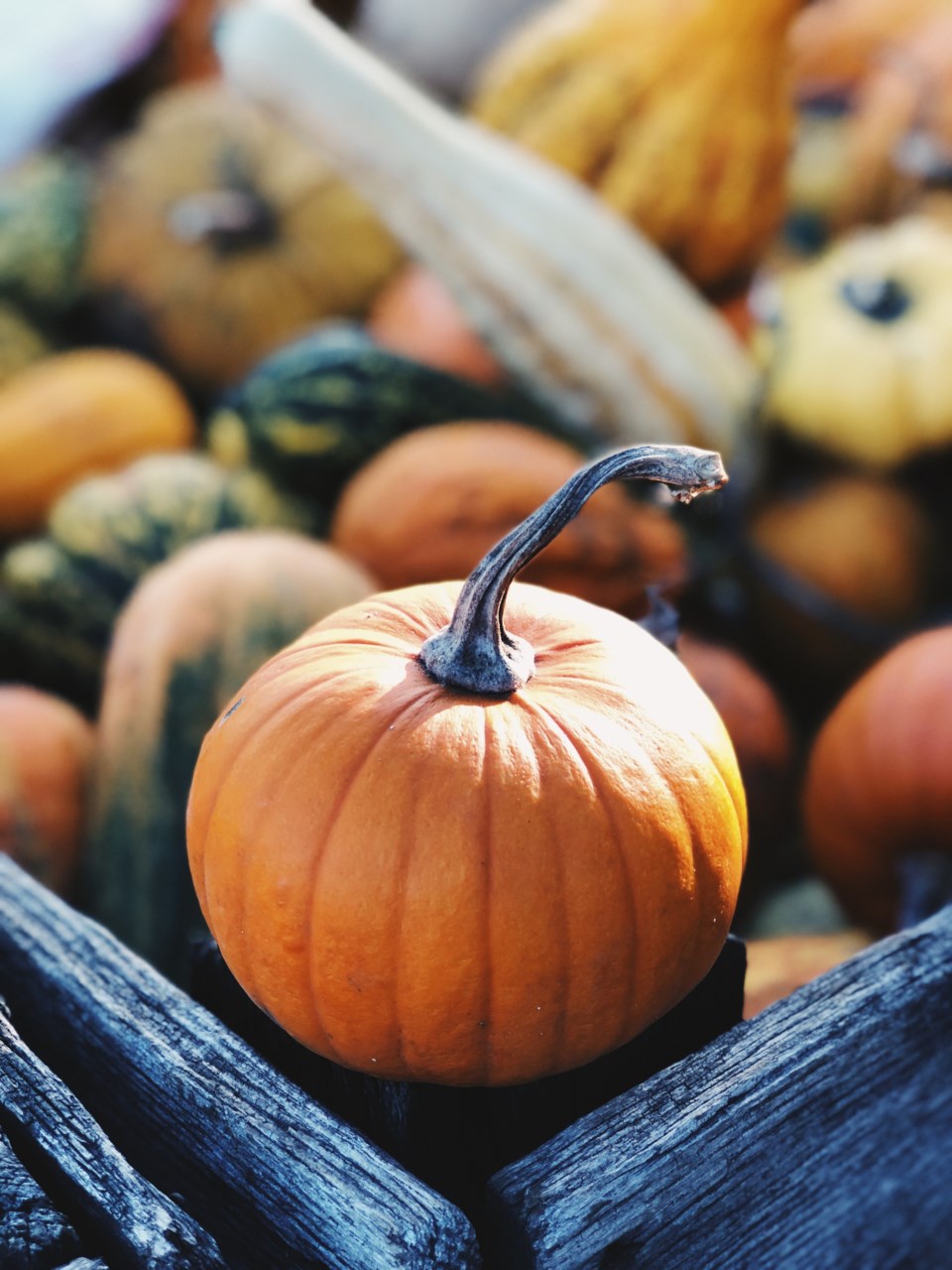 ThereŌĆÖs a very old fashioned concept that I used to sing about in my childhood in a little church in sleepy Devonshire ŌĆō that of counting your blessings. I only discovered yesterday that Bing Crosby knew about it too when in the movie ŌĆśWhite ChristmasŌĆÖ he croons, ŌĆ£When I am worried and I canŌĆÖt sleep, I count my blessings instead of sheep, I fall asleep counting my blessings.ŌĆØ
ThereŌĆÖs a very old fashioned concept that I used to sing about in my childhood in a little church in sleepy Devonshire ŌĆō that of counting your blessings. I only discovered yesterday that Bing Crosby knew about it too when in the movie ŌĆśWhite ChristmasŌĆÖ he croons, ŌĆ£When I am worried and I canŌĆÖt sleep, I count my blessings instead of sheep, I fall asleep counting my blessings.ŌĆØ
Yes, itŌĆÖs old-fashioned, yet at the same time the practice of being grateful for what we have is one which is being described by present-day writers from many religious and non-religious backgrounds as a positive thing. ItŌĆÖs good for mental health, creates a sense of well-being, and helps us to be satisfied with what we have rather than responding to a consumer culture where striving to own, to have, and to be more can be a source of anxiety and stress.╠² Likewise, surrounded by the fear and worry of the state of the world, learning to be grateful for what is good can prevent us from being overwhelmed by things over which we have little or no control.
Gratitude is not, pretending that there is nothing wrong with the world, nor an encouragement to be inactive or to ignore the needs of ourselves and others. Gratitude is taking time, paying attention to the gifts we are given ŌĆō from the beauty of the place where we live, to the moments of peace, joy, grace, love, we have in every day. By choosing to focus our attention on the good, both within ourselves and the world around us, we can offer balance to those difficulties which we and our world face. Cultivating an ŌĆśattitude of gratitudeŌĆÖ can help us to build up our resilience to deal with the harder parts of our lives. Christian theologian and writer Diana Butler-Bass, whose latest book, called ŌĆśGratefulŌĆÖ, is based on the idea of learning the practice of gratitude, tells us that neuroscientific research reveals that fear comes from the base (amygdala), the primal part, of our brain, whilst gratitude fires up our neo-cortex, our higher reason ŌĆō which means that cultivating gratitude will ŌĆśoverrideŌĆÖ the fear circuits in our brain. Gratitude processes fear, it overcomes and pushes fear aside. Being grateful makes us mentally stronger!
This isnŌĆÖt a new thought, in the Christian Scriptures, written nearly two thousand years ago, the writer Paul says, ŌĆ£Rejoice always, pray constantly, give thanks in all circumstancesŌĆ”ŌĆØ╠² He is encouraging a group of people not to give in to despair, even in the face of persecution and attack, but to recognise that God is with them in all things. And taking time to give thanks no matter what is happening around us or to us, is a way of growing in faithfulness, and in resilience.
In this season of Thanksgiving, taking time to think of things for which we are grateful is one of the usual customs at our meals together. Cultivating an attitude of gratitude goes one step further ŌĆō it involves being mindful, paying attention to the good all around; from the beauty of the sunset to surprising acts of kindness, from the love of a friend to the warmth of dry socks! It involves seeking out that which is good and worth celebrating in the large and small things of each day and learning to give thanks for that ŌĆō giving thanks to God, or the Divine, or the Universe (however you think about these things) or recognising a sense of gratitude and joy within yourself.
Happy Thanksgiving! And, perhaps, the start of a practise of giving thanks.
The Ven. Alastair McCollumis Rector of St. John the Divine Anglican Church in Victoria and Archdeacon, Diocese of Islands and Inlets.He has a passion for the Gospel, motorbikes and bike culture, worship, philosophy, theology, guitars, single malt whisky, real ale, cinema and all things French.╠²You can find Alastair at the church website: andon his blog:╠²fracme.blogspot.ca
Photo by╠²╠²┤Ū▓į╠²ThereŌĆÖs a very old fashioned concept that I used to sing about in my childhood in a little church in sleepy Devonshire ŌĆō that of counting your blessings. I only discovered yesterday that Bing Crosby knew about it too when in the movie ŌĆśWhite ChristmasŌĆÖ he croons, ŌĆ£When I am worried and I canŌĆÖt sleep, I count my blessings instead of sheep, I fall asleep counting my blessings.ŌĆØ
Yes, itŌĆÖs old-fashioned, yet at the same time the practice of being grateful for what we have is one which is being described by present-day writers from many religious and non-religious backgrounds as a positive thing. ItŌĆÖs good for mental health, creates a sense of well-being, and helps us to be satisfied with what we have rather than responding to a consumer culture where striving to own, to have, and to be more can be a source of anxiety and stress.╠² Likewise, surrounded by the fear and worry of the state of the world, learning to be grateful for what is good can prevent us from being overwhelmed by things over which we have little or no control.
Gratitude is not, pretending that there is nothing wrong with the world, nor an encouragement to be inactive or to ignore the needs of ourselves and others. Gratitude is taking time, paying attention to the gifts we are given ŌĆō from the beauty of the place where we live, to the moments of peace, joy, grace, love, we have in every day. By choosing to focus our attention on the good, both within ourselves and the world around us, we can offer balance to those difficulties which we and our world face. Cultivating an ŌĆśattitude of gratitudeŌĆÖ can help us to build up our resilience to deal with the harder parts of our lives. Christian theologian and writer Diana Butler-Bass, whose latest book, called ŌĆśGratefulŌĆÖ, is based on the idea of learning the practice of gratitude, tells us that neuroscientific research reveals that fear comes from the base (amygdala), the primal part, of our brain, whilst gratitude fires up our neo-cortex, our higher reason ŌĆō which means that cultivating gratitude will ŌĆśoverrideŌĆÖ the fear circuits in our brain. Gratitude processes fear, it overcomes and pushes fear aside. Being grateful makes us mentally stronger!
This isnŌĆÖt a new thought, in the Christian Scriptures, written nearly two thousand years ago, the writer Paul says, ŌĆ£Rejoice always, pray constantly, give thanks in all circumstancesŌĆ”ŌĆØ╠² He is encouraging a group of people not to give in to despair, even in the face of persecution and attack, but to recognise that God is with them in all things. And taking time to give thanks no matter what is happening around us or to us, is a way of growing in faithfulness, and in resilience.
In this season of Thanksgiving, taking time to think of things for which we are grateful is one of the usual customs at our meals together. Cultivating an attitude of gratitude goes one step further ŌĆō it involves being mindful, paying attention to the good all around; from the beauty of the sunset to surprising acts of kindness, from the love of a friend to the warmth of dry socks! It involves seeking out that which is good and worth celebrating in the large and small things of each day and learning to give thanks for that ŌĆō giving thanks to God, or the Divine, or the Universe (however you think about these things) or recognising a sense of gratitude and joy within yourself.
Happy Thanksgiving! And, perhaps, the start of a practise of giving thanks.
 The Ven. Alastair McCollum╠²is Rector of St. John the Divine Anglican Church in Victoria and Archdeacon, Diocese of Islands and Inlets.He has a passion for the Gospel, motorbikes and bike culture, worship, philosophy, theology, guitars, single malt whisky, real ale, cinema and all things French.╠²You can find Alastair at the church website: ╠²andon his blog:╠²
The Ven. Alastair McCollum╠²is Rector of St. John the Divine Anglican Church in Victoria and Archdeacon, Diocese of Islands and Inlets.He has a passion for the Gospel, motorbikes and bike culture, worship, philosophy, theology, guitars, single malt whisky, real ale, cinema and all things French.╠²You can find Alastair at the church website: ╠²andon his blog:╠²
You can read more articles on our interfasith blog, Spiritually Speaking,
*This article was published in the print edition of the Times 91įŁ┤┤ on Saturday, October 6th 2018
Photo of pumpkins by╠²╠²┤Ū▓į╠²


